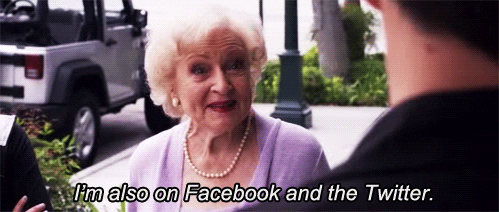⚔️ The War Between Revenue Generation vs. Brand Building
Some musings on what the future of B2B marketing will look like
Hi! 👋
In The B2B Bite, I break down the most interesting marketing stories into fun-size, actionable chunks to kick off your week.
Sent every Monday AM. Best enjoyed with coffee.
Sign up below for free.
⚔️ The War Between Revenue Generation vs. Brand Building
Hello! Happy New Year!
I hope you are reading this after getting some well-earned rest and relaxation over the holiday season. I know I did. It was two blissful weeks of telling myself that yes, it's OK to have one more chocolate, whiskey and lie in (usually in that order) because, after the year we just had, I deserved it.
It was also a time where I had a chance to reflect on how I see B2B marketing changing over the coming years.
Like many industries, our space has been rocked by COVID and forced many organisations to adapt their strategies in a world where facilitating face-to-face meetings - usually the backbone of a B2B marketers arsenal - is no longer possible. Adoption of digital, social and content channels has accelerated, a transformation that was predicted to take half a decade or more pre-pandemic, compressed into less than nine months.
There has also been an expectation for B2B organisations - though to a lesser extent than their B2C counterparts, perhaps - to take a position on the important social causes of our generation.
How are we promoting and representing D&I within their ranks? What are we doing to give back to our community? Why should our customers believe in what we stand for?
These aren't the sort of questions to be answered by companies; they're to be answered by socially responsible brands.
It's my belief that the convergence of these factors - the adoption of new, digital-first strategies and the increasing investment in brand equity - is going to fundamentally shift the status quo of B2B marketing as we understand it today.
Over the next ten years, I believe two things will happen.
Marketing will shift from being generally viewed as a cost centre to a revenue driver in a majority of B2B organisations;
And the companies that will come out on top will be the ones that strike a better balance between brand building and revenue activation.
Why do I think this?
Far too often, unfortunately, marketing in B2B organisations is relegated to checklist item rather than a meaningful driver of business growth. And I get it. When you're in the business of closing multi-million-dollar deals, it's often a relationship game. It’s an equation that comes down to who in sales knows the buyer and can be sent on a successful wine-and-dine mission?
Sure, marketing can drum up some nice branded swag, but it's the commercial cat that will bring home the cream.
But the playing field is changing. Buyers are getting younger and do most of their research without speaking to a soul. It's easier than ever to understand how potential customers engage with your brand online and guide them through the funnel to a point of conversion. And there's a lower barrier of entry for your competitors to get themselves in front of target accounts thanks to digital and social, meaning spending a six-figure sum on a trade show booth suddenly seems a whole lot less appealing.
If these factors (and more!) don't convince B2B CEOs to equip their marketing teams with the resources needed to meaningfully contribute to pipeline, I don't know what will.
However, it's not just about securing leads. Focussing on this alone is like buying a new car and leaving the engine at the showroom - it'll look nice in your driveway when people walk past, but it's not going anywhere.
I believe that if the former fact is true - that the decision-making of B2B buyers is changing - then it stands to reason that competition for eyeballs will be higher than it's ever been. 'Unsophisticated' B2B companies - the majority - will dedicate most of their time on short-term, in-market activities focussed wholly on revenue generation and completely skip an investment into brand equity.
This leaves a lot on the table. Pricing power. Category optionality. Long-term, repeat sales. Exit strength. The list of benefits that brand building can provide goes on and on.
Over the next decade, B2B organisations have to strike the right balance between revenue activation and brand building.
One is what capitalises on the market demand today, the other is what creates the market demand of tomorrow. Many will concentrate just on the former - it will be the consensus and the expectation. But the companies that invest in brand building to support long-term growth and manoeuvrability alongside revenue generation tactics will stand out by virtue of that fact.
What do you think? Tweet me @JasonRBradwell or you can reach out to me on LinkedIn.
🍴 Nibbles
One of my favourite reads of 2020 - 'Why Content is King' by Nathan Baschez - paints a compelling picture of how content can help create an insurmountable competitive moat for all kinds of companies.
Any article that introduces me to the word 'Twatosphere' deserves to be recognised - and it just so happens that this piece from Andy Whitlock is also jam-packed with great advice on what it takes to devise a brand purpose.
…and here’s my podcast.
Every two weeks I sit down with a marketing leader to lean how they hit their goals by thinking outside the box - and dig into how this can be applied to other B2B businesses. Here are a few of my most recent episodes.
What it Takes to Build a Successful B2B Community w/ Christina Pashialis
Tell Me Why… You Need Pop Culture in B2B Marketing w/ Brianne Fleming
Building a 10,000 Strong B2B Email List from Scratch w/ Sean Blanda
How to Use Instagram to Promote People and Culture w/ Nicole Tabak
You can also find the B2B Better on Apple Podcasts and almost all other podcast directories.
And that's it! See you next week.







